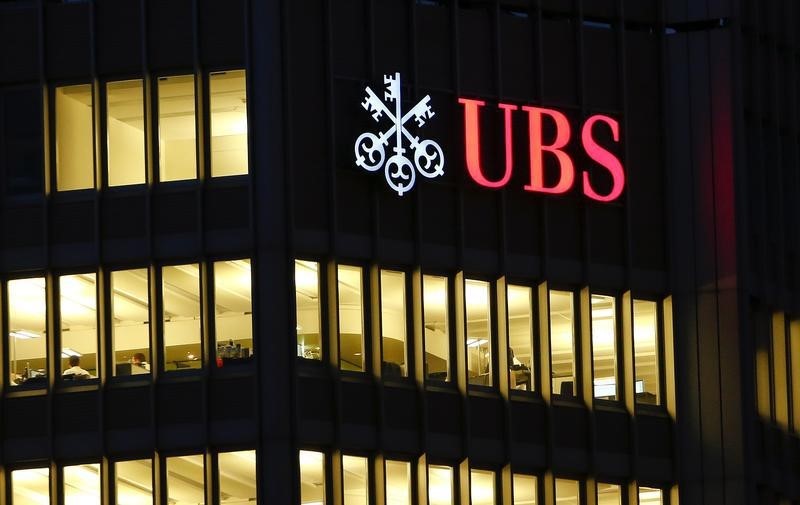ZURICH (Reuters) - UBS (VX:UBSG) did not suffer any losses overall in its trading business after the Swiss National Bank's (SNB) decision to abandon its currency cap, the bank said on Friday, confirming it would return cash to shareholders after a restructuring.
Zurich-based UBS is the third of Switzerland's three biggest listed banks to say it did not suffer losses after the SNB last week suddenly scrapped its three year-old cap on the Swiss franc.
Credit Suisse (VX:CSGN) and Julius Baer (VX:BAER) made similar declarations this week.
"In aggregate, UBS did not experience negative revenues in its trading businesses in connection with the announcement," UBS said in a statement.
British bank Barclays (L:BARC) lost tens of millions of dollars from the volatile moves in the franc on Thursday, an industry source told Reuters last week.
The end of the cap sent the Swiss franc soaring, putting big Swiss companies which have a large portion of cash in foreign currencies but report in Swiss francs under pressure.
UBS said it would give more information on its outlook for the current quarter when it publishes figures on Feb. 10.
The bank also confirmed its capital return to shareholders following a corporate restructuring would be 0.25 Swiss francs per share, to be paid once it has completed the squeeze-out procedure for shareholders who have yet to tender their shares in the exchange programme.
UBS had previously promised a supplementary capital return of at least 0.25 francs per share, as it expects the new structure will allow it to qualify for a capital rebate under Switzerland's too-big-to-fail requirements.
The bank said the accrual of capital had reduced its core capital by around 1 billion Swiss francs (0.80 billion pounds) as of end-2014.
A spokeswoman for the bank declined to comment when asked when the squeeze-out procedure would be completed.
On top of the capital return, the bank reaffirmed its aim to return at least half of its profits to shareholders if it can maintain capital -- which stood at 13.7 percent of risk-weighted assets under new global rules at the end of the third quarter -- at or above 13 percent through to the end of 2014 and achieve a ratio of 10 percent when applying its own stress tests.
